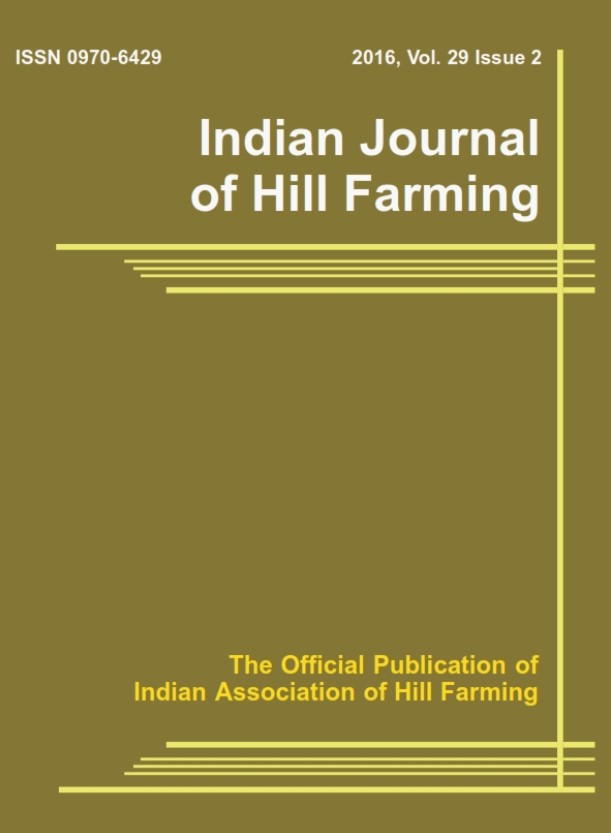Role of Inland Fisheries in the Socio-Economic Development of Cooperative Fishermen in Sikkim, North East India
Abstract
The objective of this paper is to describe and evaluate the livelihood status of the rural fishing community of Sikkim. For this purpose,100 samples were collected through a personal interview method based on questionnaire from the different PFCS (Primary Fishermen Cooperative Society) located in different districts of Sikkim. The socio-economic conditions of the fish farmers were analysed by tabular analysis with percentages and mean. Gini coefficient was used to measure the extent of income inequality among the fish farmers of PFCS. A logit model was used to ascertain the impact of different socio-economic factors on fish farmers’ perception concerning the improvement in their living conditions. The study found that the socio-economic status of the people was favourable and there were less variations among the fish farmers. The majority of the respondents were stated to have either pucca or semi pucca houses and they are using both firewood and LPG for cooking food. The study also found that the farmers have access to basic amenities like drinking water, electricity, sanitation facilities, housing, etc. The study revealed that income inequality was not so severe amongst the farmers of PFCS. The socio-economic indicators like per capita income, housing conditions and the ratio of above primary education to total members were found to impact the perceived living conditions of the fish farmers. Overall, it can be said that the majority of the fish farmers of each PFCS have realised improvements in their economic conditions after the adoption of fish farming.




